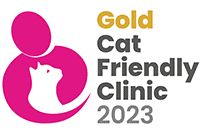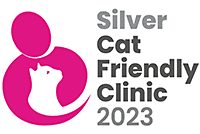Your Pet
Preventative Healthcare (puppy)
-
Fleas
Even clean dogs pick up fleas so check for these while grooming. Flea dirt can usually be seen as small brown specks, particularly around the neck and base of the tail. When placed on damp cotton wool ‘flea dirt’ slowly dissolves producing bloody streaks.
For effective control, adult fleas on the puppy must be killed and reinfestation from the environment prevented. Our Nurses and Vets can provide you with advice and recommend a prevention program suited to your pet.
-
Worming
Worms can make puppies weak. Puppies should be treated against roundworms at 4-6 weeks and then regularly every 4 weeks until they are 6 months old. After this worming they should be treated for roundworms and tapeworms every 3-4 months depending on how much they hunt and if they have fleas. Our Nurses and Vets can provide you with advice and recommend a prevention program suited to your pet.
-
Neutering
Neutering involves removing the reproductive organs; testicles in the male (castration) and ovaries and uterus in the female (spaying). We strongly recommend neutering at 6 months of age. There are several reasons why you should neuter your dog. Bitches have changes in behaviour associated with their ovarian cycles and quite often show considerable discomfort. They also suffer from increased risk of disease such as mammary cancers and potentially fatal infection of the uterus. We recommend spaying your bitch at 6 months of age – it is not necessary for the first season/heat to have occurred. Male dogs want to lead and protect the pack. In the home this can lead to socially unacceptable behaviour such as mounting, dominance and aggression. By castrating the male dog we remove the source of these behaviours – testosterone. Castration will not change the personality of your pet, it will simply settle down his male characteristics. Castration will also help prevent diseases of the prostate gland and certain cancers.
-
Vaccinations
Puppies are susceptible to a range of dangerous infectious diseases. Fortunately, we can immunise against most of these diseases making cases and epidemics rare but it is still very important to make sure your pet is fully vaccinated as the diseases are still a constant threat.
We don’t want to give vaccines unnecessarily so we tailor vaccination courses according to your pet’s age, lifestyle and certain other risk factors. It’s important to get puppies vaccinated early in their life so they are protected before they might meet other cats . Unlike immunisation in people it is essential to get your pet vaccinated annually as some of the vaccines only last a year.
When you come in for the vaccination, your puppy will also receive a thorough health check and the vet can give you advice on all aspects of care for your new arrival.
Dogs are vaccinated against Distemper, Hepatitis, Pavro virus and Leptospirosis. A vaccine for Kennel Cough is recommended in high risk situations such as those experienced when taking your dog to kennels and shows. In puppies the initial course of two vaccinations is administered at 7 and 10 weeks of age. This allows early socialization when they are protected.
Our practices
- London:
- Brackenbury
- Brook Green
- Chiswick
- Ealing
- Finchley (CLOSED)
- Garden Suburb
- Hampstead
- Highbury
- Highgate
- Kensal Green
- Maida Vale
- Palmers Green
- Primrose Hill
- Queen’s Park
- Southgate (TEMP CLOSED)
- St Helens
- St Johns Wood
- West Hampstead
- Winchmore Hill
- Hertfordshire:
- Village Vet Cattery
- Berkhamsted
- Potters Bar
- St Albans (Caytons)
- Cambridge:
- Cottenham
- Longstanton
- Milton
- Royston
- Whittlesford







